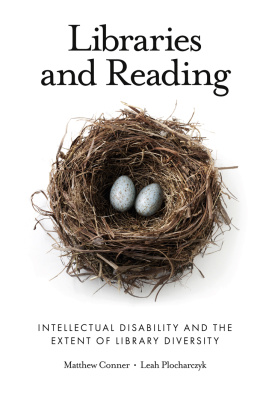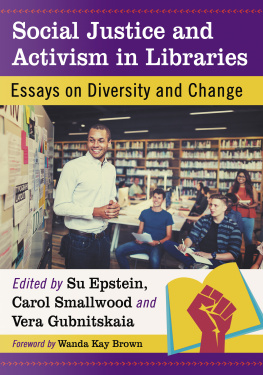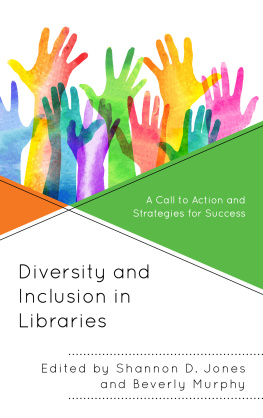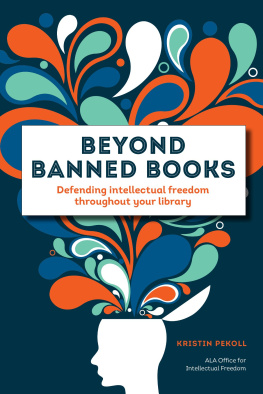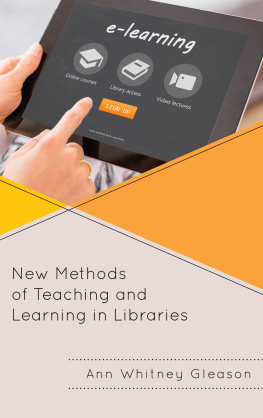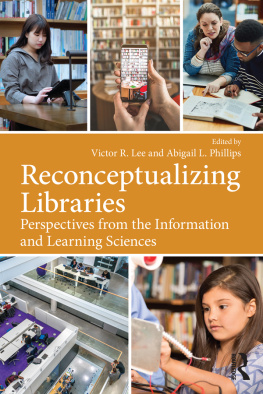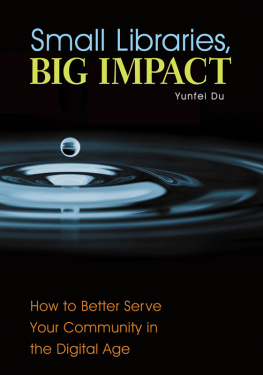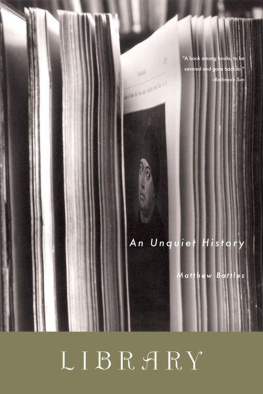References
AAIDD. (2004). Frequently asked questions on intellectual disabilities and the AAIDD definition. American Association on Intellectual and Developmental Disabilities, Washington, DC. Retrieved from www.aaidd.org/Policies/faq_intellectual_disability.shtml. Accessed on October 17, 2018.
Abrams, M. H. (1957). The correspondent breeze: A romantic metaphor. Kenyon Review, 19(1), 113130.
Addams, J. (1910). Twenty years at Hull-House. New York, NY: Macmillan.
Alfassi, M., Weiss, I., & Lifshitz, H. (2009). The efficacy of reciprocal teaching in fostering the reading literacy of students with intellectual disabilities. European Journal of Special Needs Education, 24(3), 22912305.
Alfonzo, P. (2016). Teaching Google Scholar: A practical guide for librarians. Lanham, MD: Rowman & Littlefield.
Alsop, J., & Bergart, R. (2007). Aerobics and library instruction An unexpected fit. College & Undergraduate Libraries, 14(3), 121126. doi:10.1300/J106vl4n03_09
American Library Association. (2017a). Library bill of rights. ALA, Chicago, IL. Retrieved from http://www.ala.org/advocacy/sites/ala.org.advocacy/files/content/LBORwithInterpretations.pdf. Accessed on October 7, 2018.
American Library Association. (2017b). Services to persons with disabilities: An interpretation of the library bill of rights. ALA, Chicago, IL. Retrieved from http://www.ala.org/advocacy/intfreedom/librarybill/interpretations/servicespeopledisabilities. Accessed on October 7, 2018.
Ancestry.com. (n.d.). 1800 U.S. Federal Census Newsletter. 1880 schedules of defective, dependent, and delinquent classes. Ancestry, Lehi, UT. Retrieved from http://www.ancestry.com
Anderson, K. (2013). Better beginnings: Public libraries making literacy links with the adult community. Libri: International Journal of Libraries and Information Services, 63(4), 272281.
Antin, M. (1969). The promised land. Boston, MA: Houghton Mifflin.
Aries, P. (1962). Centuries of childhood a social history of family life. New York, NY: Alfred A. Knopf.
Ashbaker, B. Y. (2011). History of legal and legislative acts concerned with special education. In A. F. Rotatori, F. E. Obiakor, & J. P. Bakken (Eds.), History of special education (Vol. 21, pp. 2145). Bingley: Emerald Publishing.
Asher, R. (1978). Painful memories: The historical consciousness of steelworkers and the strike of 1919. Pennsylvania History: A Journal of Mid-Atlantic Studies, 45(1), 6168.
Aspray, W. (1990). John von Neumann and the origins of modern computing. Cambridge, MA: MIT Press.
Asselin, S. B. (2014). Learning and assistive technologies for college transition. Journal of Vocational Rehabilitation, 40(3), 223230. doi:10.3233/JVR-140687
Association of College & Research Libraries. (2019). Guidelines, standards, and frameworks. ALA, Chicago, IL. Retrieved from http://www.ala.org/acrl/standards/standardsguidelinestopic. Accessed on April 4, 2019.
Augst, T. (2001). Introduction: American libraries and agencies of culture. American Studies, 42(3), 522.
Augst, T. (2007a). Faith in reading: Public libraries, liberalism, and civil religion. In T. Augst & K. Carpenter (Eds.), Institutions of reading: The social life of libraries in the United States. Amherst, MA: University of Massachusetts Press.
Augst, T. (2007b). Introduction. In T. Augst & K. Carpenter (Eds.), Institutions of reading: The social life of libraries in the United States. Amherst, MA: University of Massachusetts Press.
Baenen, M. (2007). Politics and culture in the Portsmouth Athenaeum. In T. Augst & K. Carpenter (Eds.), Institutions of reading: The social life of libraries in the United States. Amherst, MA: University of Massachusetts Press.
Barratt-Pugh, C., & Rohl, M. (2015). Better Beginnings has made me make reading part of our everyday routine: Mothers' perceptions of a family literacy program over four years. Australasian Journal of Early Childhood, 40(4), 412.
Barthes, R. (1970). In R. Barthes & R. Howard (Trans.). (1982), L'empire des signes. [Empire of signs.] Genve: A. Skira.
Barton, E. E. (2016). Critical issues and promising practices for teaching play to young children with disabilities. In B. Reichow, B. A. Boyd, E. E. Barton, & S. L. Odom (Eds.), Handbook of early childhood special education. Cham: Springer.
Baumann, J. F., & Koch, K. A. (2010). One year with Kim: From nonreader to reader. Reading World, 24(4), 1523. doi:10.1080/19388078509557844
Baym, N. (2007). The Norton anthology of American literature (7th ed.). New York, NY: W. W. Norton & Company.
Beck, C., & Kosnik, C. (2006). Innovations in teacher education: A social constructivist approach. Albany, NY: State University New York Press.
Behling, K., & Hart, D. (2008). Universal course design: A model of professional development. Strategies for bringing UCD to a college campus and ensuring its sustainability. In S. Burgstahler (Ed.), Universal design in postsecondary education: From principles to practice (pp. 109125). Cambridge, MA: Harvard Education Press.
Behrman, E. H. (2002). Community-based literacy learning. Reading, 36(1), 26.
Bennett, S. (2009). Libraries and learning: A history of paradigm change. portal: Libraries and the Academy, 9(2), 189197.
Berube, M. (1998). Life as we know it. New York, NY: Vintage Books.
Berube, M. (2016a). Life as Jamie knows it: An exceptional child grows up. Boston, MA: Beacon Press.
Berube, M. (2016b). The secret life of stories: From Don Quixote to Harry Potter, how understanding intellectual disability transforms the way we read. New York, NY: New York University Press.
Black, R., Litz, K., Thornhill, M., & Goreczny, A. (2016). Do inclusive work environments matter? Effects of community-integrated employment on quality of life for individuals with intellectual disabilities. Research in Developmental Disabilities, 5354, 358366.
Blummer, B., & Kenton, J. M. (2018). Academic libraries and student learning outcomes. Performance Measurement and Metrics, 19(1), 7587. doi:10.1108/pmm-11-2017-0053
Bottcher, L., & Dammeyer, J. (2012). Disability as a dialectical concept: Building on Vygotsky's defectology. European Journal of Special Needs Education, 27(4), 433446. doi:10.1080/08856257.2012.7119
Botturi, L., & Loh, C. S. (2009). Rediscovering the roots of games in education. In C. T. Miller (Ed.), Games: Purpose and potential in education. Boston, MA: Springer.
Bradley, E., & Hollins, S. B. (2013). Books beyond words: Using pictures to communicate. Journal on Developmental Disabilities, 19(1), 2432.
Bridges, J. (Writer). (1973). The paper chase (TV series). In R. Paul & R. C. Thompson (Producer). Los Angeles, CA: 20th Century Fox.
Bridges, J. (Writer). (1978). The paper chase (TV series). In A. Aley, R. Lewin, & E. A. Losso (Producer). Los Angeles, CA: 20th Century Fox.
Broderick, A. (2005). Differentiating instruction for disabled students in inclusive classrooms. Theory Into Practice, 44(3), 194202.
Bronowski, J. (1973). The ascent of man. Boston, MA: Little, Brown and Company.
Brown, L. E., Udavari-Solner, A., Davis, L., Devon, P., Ahlgren, C., Johnson, F., Jorgensen, J. (1989). The home school: Why students with severe intellectual disabilities must attend the schools of their brothers, sisters, friends, and neighbors. Journal for the Association of Persons with Severe Handicaps, 14(1), 17.
Brown, A., & Jones, B. A. (1989). Mainstreaming children with special needs in physical education. Newcastle upon Tyne: University of Newcastle.

